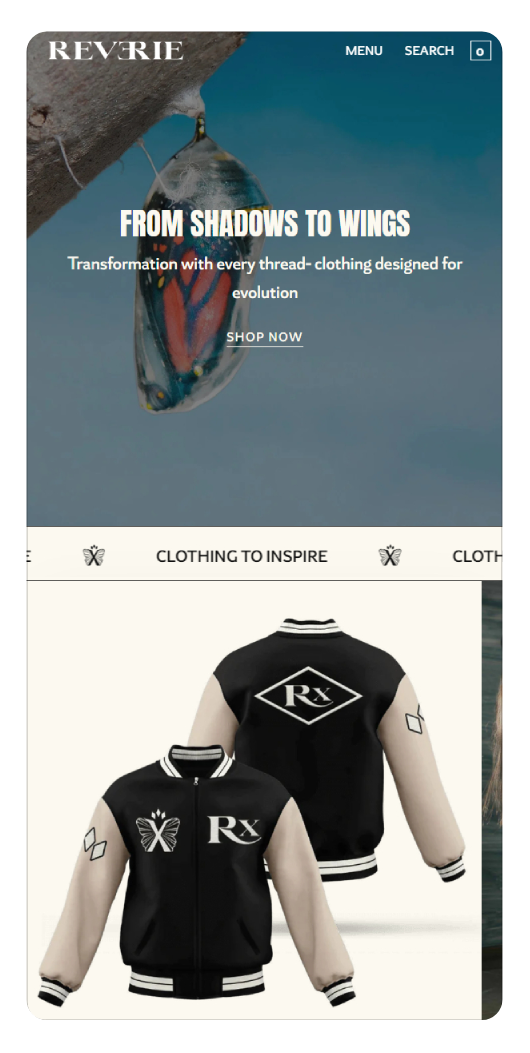Before You Build Your Shopify Store in Raleigh: 10 Key Things to Consider
Shopify is a major ecommerce platform used by more than 1.75 million traders in 175+ countries. It helps to easily create and manage all sizes of businesses of your shopify store. If you're launching in Raleigh or anywhere in the U.S., connecting with a Shopify expert agency or a trusted Shopify web agency can accelerate your setup process and reduce risks.
Need expert guidance?
Hire a Shopify developer on Upwork
Why it matters
While Shopify provides powerful tools, looking at the major setup steps can lead to later issues. This is why a solid checklist is required for the construction of a successful shopify store. Working with a Shopify plus design agency ensures these key steps are not missed, especially when targeting competitive markets like Raleigh.
What is Shopify?
Shopify is a hosted, subscription-based platform that allows businesses to launch, sell and develop its brand globally.
Shopify Store Checklist: 10 required
1. Set your domain:
Avoid using the default "Myshopify.com" URL. A custom domain creates confidence and strengthens your brand. The domain can be purchased through platforms such as Google Domain. Allow up to 24 hours to update.
2. Prepare quality media
High quality products photo and media property are important. Build your Shopify Store Build and to save your Shopify store quickly to save time.

Visual property required for your shopify store
Before launching your Shopify Store, collect a strong collection of media assets to streamline your design process. These can include:
- Products and Branded Pictures
- Stock photography
- Logo in ESP, JPG and PNG formats
- A style guide
- Graphic element and symbol
- Video content
Being a comprehensive media library gives you flexibility when designing your store and marketing materials. For branded visuals, it is smart to place a version without logo to reuse them on various platforms. Tools such as apps like canva or video background can help you easily make and edit materials.
3. Give priority to mobile experience
Do not ignore mobile! Many users shop on their phone, and a slow or clunk mobile site can remove them. Ensure that your shopify store is adapted to speed and purpose on all devices - especially mobile. A fast-loading, mobile-friendly site can significantly improve customer retention and sales.
One of the strength of Shopify is its flexibility - the owners of the store can adjust the settings to improve how their site performs on mobile devices. To ensure a smooth experience, it is smart to run a speed test using a tool such as Google PageSpid Insights and check for a regularly broken link.

But the speed is not everything. Elements such as image placement, call-to-action button, pop-up behavior and browser compatibility also play a big role in mobile performance. In Cyrus Webtech, we recommend reviewing your mobile layout with a UI/UX specialist to ensure that your Shopify store provides a spontaneous experience in all devices.
4. Add a Chatbot or Connect Social Messaging
Modern tools make it easier than ever to engage customers. Over 1.4 billion people use chatbots to get quick answers or share feedback. By setting up a chatbot with pre-written responses, you can offer instant support and reduce manual workload.
Prefer a personal touch? You can link your Shopify store with platforms like Facebook Messenger for direct communication. Either way, improving response time enhances the customer experience.
5. Master the Basics of Shopify SEO
SEO is essential for helping your Shopify store appear in search results and attract organic traffic. Focus on:
- Sitemap – Helps search engines crawl and index your site
- Image Optimization – Use keyword-rich file names, alt text, and compressed formats
- Keyword Research – Target relevant search terms with high intent
- Google Business Profile – Keep it updated with accurate info and visuals
- Content Marketing – Write detailed, optimized product pages and policies
Shopify offers built-in tools to support your SEO efforts. Start early and stay consistent to boost visibility and conversions.
6. Prioritize User Experience
Design your Shopify store to be intuitive and easy to navigate. Use clear menus, search functionality, and ensure it’s mobile-friendly and responsive across all devices. A fast, user-friendly layout improves engagement and supports Google’s Core Web Vitals.
7. Include Essential Pages
Build trust by adding key pages your customers expect:
- Homepage
- Contact page
- About page
- FAQs
- Shipping & Returns
- Terms & Privacy Policy
- Collection & Product pages
- Checkout page
These pages help users understand your brand and make informed purchases.
8. Optimize Site Speed
A fast-loading Shopify store boosts conversions and SEO. Aim for a Google Lighthouse score above 50. Use tools like PageSpeed Insights to test performance.
Speed Tips:
- Compress images
- Limit installed apps
- Choose a lightweight theme
- Enable caching
- Simplify page design
Faster sites lead to better rankings, higher conversions, and stronger customer loyalty
9. Choose the right shopify payment gateway and set tax
Shopify supports various payment gateways such as shopify payments, papails, and worldpe - each catering for various customer needs. Select the one that fit your business model and ensure safe transactions. Don't forget to configure your tax settings based on your field and product types.
10. Plan your shopify shipping strategy
Set clear, competitive shipping rates before launch. Whether you use flat rates, calculated shipping, or weight-based options, ensure that they align with your product types and target areas. Accurate delivery estimates and transparent fees improve customer confidence and satisfaction.

























